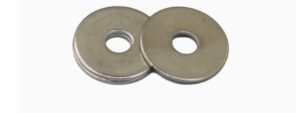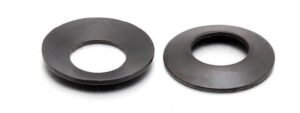When attaching wood to metal, selecting the correct bolt or screw is essential for a strong and lasting connection. The right fastener depends on factors like material thickness, application, and required strength. Understanding your options is key to ensuring a successful and secure outcome. Let me guide you in choosing the best solution for your project.
Self-drilling screws (Tek screws) are widely recommended for wood-to-metal connections due to their ability to drill through metal without pre-drilling. These screws offer strong holding power, particularly in light-gauge steel. Wood-to-metal screws, self-tapping screws, and sheet metal screws are also viable options, with each offering unique benefits. For more robust connections, carriage bolts or machine screws may be more appropriate, depending on the application and material thickness.
Let’s dive into the different types of bolts and screws available, their unique benefits, and which one is best for your wood-to-metal projects. Here’s a breakdown of the top options.
Types of Bolts and Screws for Wood-to-Metal Connections
Self-Drilling Screws (Tek Screws)
What makes Tek screws ideal for wood-to-metal applications?
Self-drilling screws, also known as Tek screws, are designed to drill their own hole into metal, eliminating the need for pre-drilling. This feature saves time and effort, especially in lighter-gauge steel. These screws provide a strong hold and are perfect for projects where speed and efficiency are crucial. Tek screws are most often used in light-gauge steel and other thin metal applications.

Wood-to-Metal Screws
How do wood-to-metal screws work?
Wood-to-metal screws are designed with a dual-thread configuration. They feature a coarse thread for wood and a fine thread for metal. This dual-thread setup ensures a firm grip and a secure connection between the two materials. They are often used when a strong, long-lasting bond is needed in furniture or structural projects. This type of screw works especially well when joining wood to metal frames, cabinets, or other structures where maximum holding power is required.
Self-Tapping Screws
Do I need a pilot hole for self-tapping screws?
Self-tapping screws are another great option for thinner metal. These screws don’t drill their own hole but instead form threads in the material as they are driven in. They are particularly useful for light metal and smaller projects where you don’t need the heavy-duty drilling capabilities of a Tek screw. Keep in mind that while they are versatile, they may not work as well on thicker metals unless they have a pointed drill tip.

Sheet Metal Screws
Can sheet metal screws be used for wood to metal?
Yes! Sheet metal screws are specifically designed with a sharp pointed tip and wide thread that easily penetrate wood and metal. Their aggressive thread profile ensures a tight fit and secure fastening. These screws are often used for light metal or thin gauge materials. They’re great for applications such as fastening wood to thin metal panels, roofing, or ductwork. These screws are designed for versatility and are a good choice for DIY projects.
Machine Screws
What makes machine screws suitable for wood-to-metal connections?
Machine screws are used to fasten metal parts together in pre-drilled and tapped holes. While these screws are typically used in metal-to-metal applications, they can be very effective when additional holding power is required, particularly in industrial and mechanical environments. Machine screws are precise and are ideal for applications where you need a secure, high-strength connection, such as in machinery, mechanical components, or other heavy-duty projects.

Carriage Bolts
When should I use carriage bolts for wood-to-metal connections?
Carriage bolts are a great option for heavy-duty wood-to-metal applications. These bolts feature a round domed head and a square shank that prevents the bolt from turning when tightened. Carriage bolts provide a robust and secure connection, especially when additional strength is needed. They are commonly used in structural and outdoor applications where both wood and metal need to be securely fastened. Common applications include connecting metal frames to wooden posts or beams in construction projects.
How to Choose the Right Fastener for Your Project?
Consider the Gauge of the Metal
For thicker metals (18 gauge or less), self-tapping screws with a drill point work well because they can penetrate the metal without excessive effort. If you’re working with very thick metal, you may need a more powerful tool, like a self-drilling screw or a machine screw with a nut and washer to maintain a secure hold.
Material and Corrosion Resistance
When working in outdoor environments or areas prone to moisture, stainless steel screws are the best choice as they provide excellent corrosion resistance. Stainless steel fasteners are ideal for outdoor furniture, decking, and structural applications where rusting could compromise the integrity of the connection.
Strength Requirements
If you need additional holding power, consider using machine screws with Tee nuts or carriage bolts for a more secure, heavy-duty connection. These options are ideal for industrial and high-load applications, ensuring that your wood and metal stay securely fastened even under stress.
Summary
Choosing the right bolt or screw for wood-to-metal applications ensures a secure and lasting connection. Consider the material thickness, corrosion resistance, and strength requirements of your project when selecting fasteners. With the right choice, you’ll ensure a strong and reliable bond for your wood and metal structures.
For more information, visit our website at Hengrui Fasteners or reach out to me directly at info@hrfastener.com. I’m here to help with all your fastener needs!






